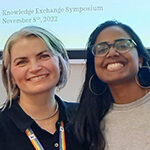Social Justice
Social justice is a broad term. The Oxford English Dictionary defines it as “Justice in terms of the distribution of wealth, opportunities, and privileges within a society.” In other words, social justice aims to create equality.
I recently completed a journalistic project on political representation in the UK, where there is clear inequality. Following May’s General Election, the undeniable fact that we as a country had elected our most diverse Parliament ever, made a few ripples in the media. More female MPs had been elected than ever before. More MPs from a BME background had been elected than ever before. The number of privately educated MPs had decreased slightly.
One might have felt that the Commons was beginning to mirror the makeup of the British population. Looking more closely at the issues behind political representation led me to the conclusion that whilst politics is indeed becoming more representative of the British population, it is happening at an unacceptably slow pace.
In many cases, political change is being driven from the bottom up. It is not the mainstream parties’ attempt to recruit young people from BME backgrounds that is driving change, but organisations like Act for Somalia, based in Bristol, which launched a huge voter turnout drive amongst East Bristol’s large Somali community.
There are currently 191 female MPs sitting in the Commons, an impressive increase from the 147 elected in 2010. But the stark fact remains; there are currently more male MPs (459) than there have ever been female MPs. This shows that drastic action is still required to boost female political representation.
All-women shortlists had a huge impact twenty years ago when Labour introduced them, but more needs to be demanded of our political class. This is why the 50:50 Parliament campaign has been launched, aiming for a “Parliament where men and women legislate the laws of our land, together, in roughly equal numbers.” The campaign has received cross-party support, and has been mirrored by local campaigns, such as the one in Bristol intended to achieve 50:50 representation on the City Council next year.
The idea of all-BME shortlists has been floated in recent times, as a method of increasing the number of BME candidates, and by extension BME MPs. Many politicians, particularly those on the right, are inherently opposed to this sort of action, with concerns that ‘the best person for the job’ is bypassed because they don’t fit the required criteria. Whilst resistance to all-BME shortlists would be strong, they may be the next frontier in the debate over positive action and adequate representation.
Following May’s election there are now also fewer openly disabled MPs, following the defeats of Lib Dem Stephen Lloyd and Labour’s Dame Anne Begg and the retirement of David Blunkett. It appears there are now only two MPs who self-identify as disabled. Savage cuts to welfare benefits hit disabled people disproportionately, and without a strong voice in Parliament, it is down to groups such as Disabled People against Cuts, who protested inside Parliament in June to raise awareness of the impact.
The more diverse our elected representatives, the better Parliament’s chance of understanding the challenges faced by people from different backgrounds. Diverse representation is an issue for the whole of society. But it is one in which political parties can take a lead, by fielding candidates from diverse backgrounds as often as possible.
Philip Mansell, Freelance Journalist




